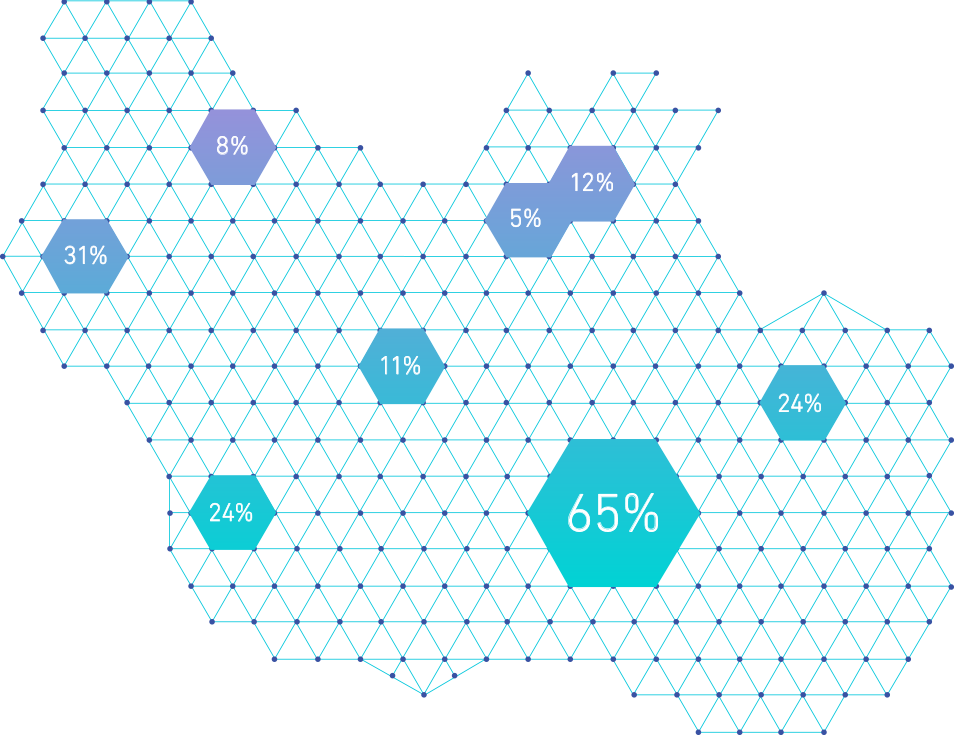

The Haptic Feedback Solution for Hand Prosthetics
A Haptic Feedback Solution for Hand Prosthetics
What is Haptic Touch?
Haptic Touch is an accessory to current hand prosthetics that provides users with haptic feedback. Current hand prosthetics come in one of three categories:
01
Passive Functional
These prosthetics have no active movement. They are the cheapest and simplest current solutions.
02
Body-Powered
These prosthetics use a mechanical process to initiate movement. They are more advances and allow for simple movements
03
Myoelectric
These prosthetics use biochemical processes to initiate movement. These are the most intricate current solutions, and also the most expensive.
The Problem? None of these solutions include haptic feedback.
Haptic feedback is the ability to understand one's surroundings through the sense of touch. Haptic Touch aims to introduce this feature to already existing prosthetic hands.

How Does it Work?
Haptic Touch has two main components:
-
A force sensing glove
-
A haptic buzzband
The force sensing glove uses flexible force sensors to read in environmental inputs from a prosthetics user. A diagram of this glove is shown below:
.png)
The haptic buzzband received the readings from the glove through bluetooth, and emits vibration patterns to inform the user of their surroundings:
.png)
Financials
Haptic Touch aims to model the business plan on a Cost-Based Approach and a Value-Based Approach. These plans are dynamic and will evolve with our product:
-
The cost-based approach will set a static price for the initial one-size-fits all model
-
The value-based approach will change prices if products require different adjustments for different individuals; this may come into play as the product evolves
To fund our product, Haptic Touch is currently searching for assistance from venture capitals and angel investors. Funding would greatly accelerate commercialization, and Haptic Touch is excited to pitch to interested parties.

Haptic Touch aims to follow a typical start-up lifecycle, as we are currently in the early stages of company building.
Our Team
_JPG.jpg)
Michael Ainsworth is a graduate student at the Johns Hopkins University, studying Biomedical Engineering with a focus in Biomedical Data Science. He completed his undergraduate degree at Johns Hopkins University as well, where he studied Biomedical Engineering with a concentration in Medical Devices. His interests include prosthetics, wearable medical devices, and the intersect between machine learning and healthcare. He has design team experience creating teleoperated robotics for remote palpation.

Arik Slepyan is a graduate student at the Johns Hopkins University, studying Biomedical Engineering with a focus in Biomedical Instrumentation and Neuroengineering. Arik is a masters student in Prof Nitish Thakor’s lab researching the development of new scalable tactile sensor arrays. He completed his undergraduate at Johns Hopkins as well in Biomedical Engineering with a focus on Microelectronics and Microfluidic Devices.
.png)
Jeffrey Omoniyodo is a graduate student at Johns Hopkins University, studying Electrical and Computer Engineering with a focus in Very Large Scale Integration Systems and Embedded Systems. Jeffrey got his bachelor’s degree in Electrical Engineering from Morgan State University. His interests are in fast switching integrated circuits and Robotics. He has lab experience in nanowire growth, Energy conservation in an Aquaponic system, Clock circuit time optimization and Microprocessor design and analysis.
